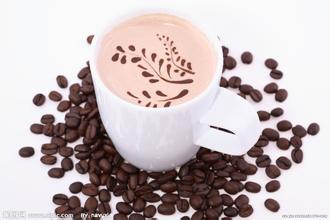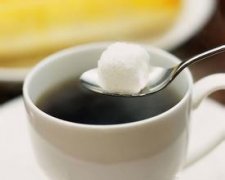Coffee beans Common sense Blue Mountain Coffee is called "the aristocrat in Coffee"

Blue Mountain Coffee, known as the "aristocrat of coffee", is produced on the island of Jamaica in the Caribbean. The island runs through the mountains, and the slopes of these mountains are the main producers of Jamaican coffee. Pure Jamaican Blue Mountain Coffee perfectly combines the unique sour, bitter, sweet, mellow and other flavors of coffee to form a strong and attractive elegant flavor, which is unmatched by other coffee.
Blue Mountain Coffee can maintain its top status today, which is closely related to the local management policy. In 1932, Jamaica reduced the island's dependence on sugar exports through a policy of encouraging coffee production. Unlike most coffee-producing countries, the local government does not plant a large number of high-quality and poor-quality coffee in order to increase output, but to give priority to quality, preferring to sacrifice the output of coffee to ensure the quality of Blue Mountain coffee. Therefore, Jamaica is currently one of the countries with low coffee production in the world. Brazil, the world's largest coffee exporter, produces 30 million bags of coffee a year, while Blue Mountain produces only about 40, 000 bags a year.
More than 90% of Blue Mountain coffee is sold to Japan. For the very precious Blue Mountain Coffee, the packing and transportation mode adopted by the Jamaican government is also different. Unlike other coffees, Blue Mountain Coffee is not packed and transported in cloth bags at 60 kg / bag, but in wooden barrels at the standard of 70 kg / barrel. What is even more special is that each barrel is accompanied by a certificate issued and sealed by the Jamaican government to prove its pure pedigree, which is unique in the whole coffee industry.
The processing of Blue Mountain Coffee is also very exquisite. Strict and detailed standards have been established for processing, baking and packaging, and there are regulations on what kind of organic fertilizers are needed during the growth period. All are harvested manually at harvest time. Jamaica is also the last country to still transport coffee in traditional wooden barrels.
Important Notice :
前街咖啡 FrontStreet Coffee has moved to new addredd:
FrontStreet Coffee Address: 315,Donghua East Road,GuangZhou
Tel:020 38364473
- Prev

Coffee basic knowledge Coffee grounds can remove the toxic smell of dirt
There is good news for coffee lovers around the world: the large amount of coffee grounds they throw away helps remove the toxic smell of dirt. In the American Journal of Hazardous Materials, researchers at the City University of New York published a study saying that coffee grounds can absorb hydrogen sulfide gases, which are often caused by the fact that the dirt smells so bad. Now the common practice is to use activated carbon.
- Next

Coffee can reduce the incidence of cancer
Coffee is surprisingly one of the most effective weapons in the human struggle against cancer. In the past eight months alone, coffee has been associated with a reduction in four types of cancer. According to the latest reports, coffee is an obnoxious opponent of the following cancers: endometrial cancer (Endometrial cancer): drinking more cups of coffee a day than women who drink less than one cup of coffee a day
Related
- Beginners will see the "Coffee pull flower" guide!
- What is the difference between ice blog purified milk and ordinary milk coffee?
- Why is the Philippines the largest producer of crops in Liberia?
- For coffee extraction, should the fine powder be retained?
- How does extracted espresso fill pressed powder? How much strength does it take to press the powder?
- How to make jasmine cold extract coffee? Is the jasmine + latte good?
- Will this little toy really make the coffee taste better? How does Lily Drip affect coffee extraction?
- Will the action of slapping the filter cup also affect coffee extraction?
- What's the difference between powder-to-water ratio and powder-to-liquid ratio?
- What is the Ethiopian local species? What does it have to do with Heirloom native species?

